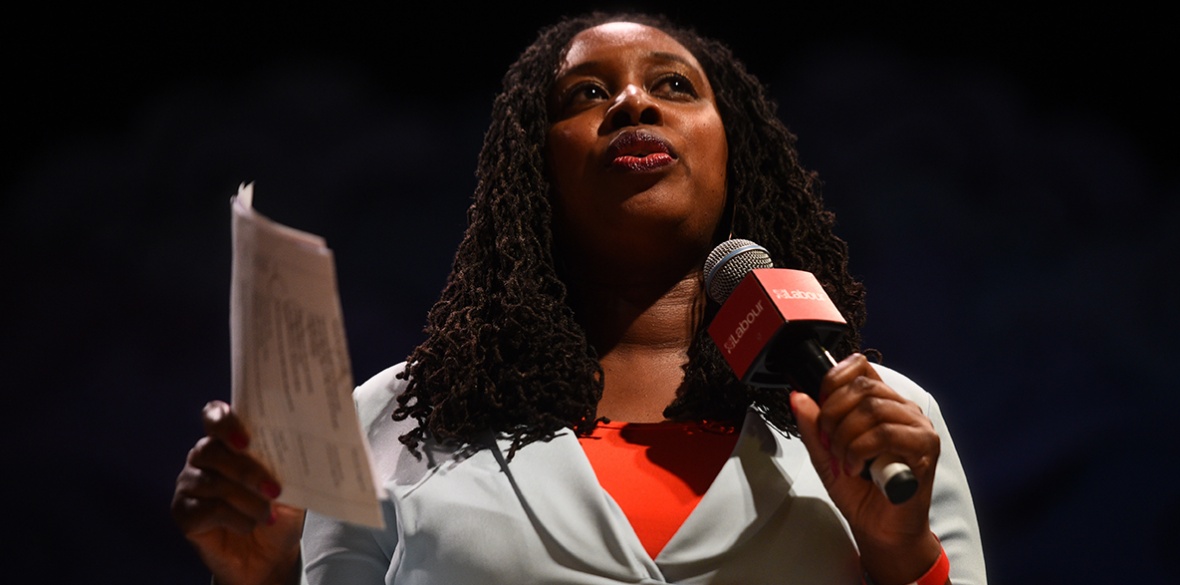This is the last article you can read this month
You can read more article this month
You can read more articles this month
Sorry your limit is up for this month
Reset on:
Please help support the Morning Star by subscribing here
DAWN BUTLER’S exclusion from Parliament for calling Boris Johnson a liar will leave the country bemused.
Even among Tory voters the suggestion that honesty is an attribute of our current Prime Minister would prompt laughter.
The need to be courteous in professional settings is familiar to most of us. But Westminster’s archaic conventions invite ridicule.
Few have shown them up so sharply as the long-standing Bolsover MP Dennis Skinner. No politico will forget the occasion when, instructed to withdraw his remark that half the MPs on the Tory benches were crooks, he obliged: “OK, half the Tory members aren’t crooks.”
Butler’s reproof will only draw attention to the gulf between Westminster’s view of itself and the low esteem in which it is almost universally held. In surveys politicians are routinely ranked the least trustworthy profession in Britain: a 2019 poll found that just 14 per cent of people would “generally trust them to tell the truth.”
The collapse in confidence is deserved, as journalist Peter Oborne has demonstrated in books from The Rise of Political Lying, about the Blair years, through to The Assault on Truth which focuses on Johnson.
Oborne overestimates the honesty of pre-Blair governments — Thatcher lied repeatedly through the miners’ strike. But he is correct that ministers’ lying has become routine, while the consequences of being caught are now non-existent. Esther McVey did not resign in 2018 even after admitting to misleading Parliament; Matt Hancock was reportedly “lying to everyone” but it was not this that did it for him.
Oborne is also shrewd in pointing to Blair as a watershed. That a Prime Minister would lie about something as serious as invading Iraq has shattered trust in politics ever since.
This is a double-edged sword. Rock-bottom trust in politicians is linked to a collapse in the legitimacy of the political system.
This ought to lead to an appetite for radical change, and it can do: the wave of enthusiasm for “a different kind of politics” from 2015 was tied up with Jeremy Corbyn’s reputation as a different kind of politician, someone who said what he really thought.
Yet it fatally undermined that same movement in 2019: despite a manifesto whose main pledges on public ownership, higher pay and taxing the rich were backed by a majority, Labour was not trusted to carry it out (a development linked to abandoning the promise to respect the Brexit vote, not just as a breach of trust but because years of equivocation on Brexit had undermined Corbyn’s key asset of 2015-17 — a reputation for straight talking).
Some say we have entered a “post-truth” era, characterised by “the disappearance of shared objective standards for truth.”
This results in opponents being denied legitimacy, as when Trump supporters denied Joe Biden’s electoral victory, or in this country where Remain supporters depicted the Leave vote as illegitimate.
A liberal response has been to call on communication platforms like Facebook to police the accuracy of information. But these corporate players are far from objective, and the predictable response has been the suppression of voices for political reasons, with information that challenges dominant media narratives about countries such as Cuba or Venezuela dismissed as “fake news.”
The irony is that, while a majority will agree with Butler’s assessment of Johnson, this poses no political threat to him. The reputation of politics is so low that the Prime Minister being a liar is not seen as a recommendation of any of his opponents (which may be fair enough, given Sir Keir Starmer’s flexible attitude to his leadership pledges).
It is the whole system, and not merely its current figurehead, which has lost public trust.
The only political answer is a revolutionary one: a movement from below that restores people’s faith not in politics as we know it — which deserves no such faith — but in politics as a means to change our lives for the better.











